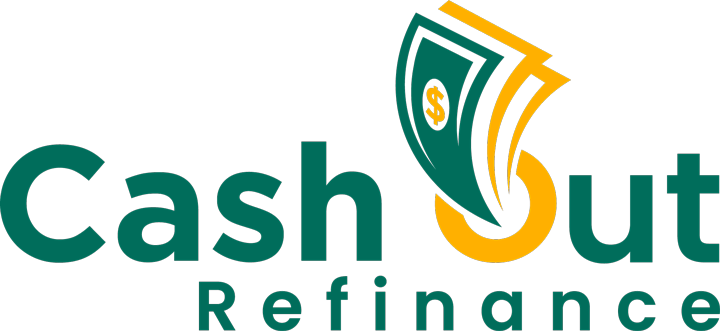Benefits of jumbo cash-out refinancing
For homeowners with luxury or high-value properties, refinancing can be a powerful tool to unlock the equity in their homes. However, when the amount you need exceeds the conforming loan limits set by the Federal Housing Finance Agency (FHFA), you’ll need to consider a jumbo cash-out refinance. This type of refinancing is designed specifically for high-value properties and offers a way to tap into significant home equity while maintaining favorable loan terms.
In this comprehensive guide, we’ll explain how jumbo cash-out refinances work, who qualifies, and the benefits for homeowners with high-value properties.

What is a Jumbo Cash-Out Refinance?
A jumbo cash-out refinance is a mortgage refinancing option for homeowners with loans that exceed the conforming loan limits set by the FHFA. In 2024, the conforming loan limit for a single-family home is $726,200 in most parts of the United States. However, in high-cost areas, this limit can go up to $1,089,300. If your mortgage balance exceeds these limits, you will need a jumbo loan to refinance.
A cash-out refinance allows you to replace your existing mortgage with a new one for more than you owe, taking the difference in cash. For high-net-worth individuals with significant home equity, this option provides the opportunity to access substantial funds to cover various financial needs, such as home improvements, debt consolidation, or major investments.
Who Can Benefit from a Jumbo Cash-Out Refinance?
A jumbo cash-out refinance is typically best suited for homeowners with luxury or high-value homes. This type of loan is designed for borrowers who:
- Own homes with values that exceed conforming loan limits.
- Have built up a significant amount of home equity.
- Are looking to access large amounts of cash for home improvements, investments, or debt consolidation.
- Have high credit scores (usually at least 700) and substantial income to qualify for the loan.
For high-net-worth individuals who want to take advantage of the equity they’ve accumulated in their home, a jumbo cash-out refinance offers the opportunity to access those funds without selling the property.
How Jumbo Cash-Out Refinances Work
A jumbo cash-out refinance follows the same basic process as a standard cash-out refinance but with higher loan amounts and stricter eligibility requirements. Here’s how it works:
- Appraise Your Home: The first step is to have your home appraised to determine its current market value. The appraised value of your home will determine how much equity you have and how much you can borrow.
- Determine Loan-to-Value Ratio (LTV): Lenders use your loan-to-value ratio (LTV) to determine how much you can borrow. Most jumbo cash-out refinances allow you to borrow up to 80% of your home’s appraised value. For example, if your home is appraised at $1.5 million and you owe $800,000, you could potentially borrow up to $1.2 million, giving you access to $400,000 in cash (minus closing costs).
- Apply for the Loan: Once you’ve determined how much equity you can access, you’ll need to apply for the jumbo cash-out refinance. Lenders will evaluate your credit score, income, debt-to-income ratio, and other financial factors to determine whether you qualify for the loan.
- Close the Loan: After your application is approved, you’ll close on the new mortgage. The new loan will pay off your existing mortgage, and you’ll receive the remaining funds in cash.
Eligibility Requirements for a Jumbo Cash-Out Refinance
Since jumbo loans involve higher loan amounts, they come with stricter eligibility requirements than conforming loans. To qualify for a jumbo cash-out refinance, you’ll need to meet the following criteria:
1. High Credit Score
Lenders typically require a credit score of at least 700 to qualify for a jumbo cash-out refinance. Some lenders may have higher minimums, especially for larger loan amounts. Borrowers with excellent credit scores (750 or higher) may qualify for better interest rates.
2. Significant Income and Stable Employment
Because of the larger loan amounts involved, lenders will want to ensure that you have a stable and substantial income. You’ll need to provide proof of income through pay stubs, tax returns, and other documentation. Your debt-to-income ratio (DTI) will also be considered. Most lenders prefer a DTI ratio of 43% or lower, meaning that no more than 43% of your monthly gross income should go toward debt payments.
3. Home Equity
To qualify for a jumbo cash-out refinance, you must have substantial equity in your home. Most lenders will allow you to borrow up to 80% of your home’s appraised value, but some may allow higher or lower LTV ratios depending on your credit score and financial profile. The more equity you have, the more cash you can access.
4. Higher Down Payment (If Applicable)
If you’re refinancing to purchase a second home or investment property, lenders may require a higher down payment than with conforming loans. While this requirement may not apply to a cash-out refinance, it’s important to keep in mind if you’re looking to purchase another property using the funds from your refinance.
Advantages of a Jumbo Cash-Out Refinance
A jumbo cash-out refinance offers several advantages for high-value homeowners. Here’s why you might consider this type of loan:
1. Access to Significant Cash
For homeowners with luxury properties, the primary benefit of a jumbo cash-out refinance is the ability to access large amounts of cash. Whether you need funds for home renovations, investments, or other financial goals, this type of loan allows you to leverage your home’s equity to access the money you need.
2. Lower Interest Rates Compared to Personal Loans or Credit Cards
While jumbo loans may come with higher interest rates than conforming loans, they often offer lower rates than personal loans or credit cards. If you need cash for major expenses, a jumbo cash-out refinance can provide access to funds at a more favorable interest rate, helping you avoid the higher costs of other types of financing.
3. Debt Consolidation
Many homeowners use the funds from a jumbo cash-out refinance to consolidate high-interest debt, such as credit card balances, personal loans, or other debts. By consolidating debt into a lower-interest mortgage, you can simplify your monthly payments and reduce the overall interest you pay over time.
4. No Private Mortgage Insurance (PMI)
Unlike conventional loans that require PMI if you borrow more than 80% of your home’s value, jumbo loans generally do not require PMI, even if your loan exceeds this threshold. This can result in significant savings, as PMI can add hundreds of dollars to your monthly payment.
Potential Drawbacks of a Jumbo Cash-Out Refinance
While there are many benefits to a jumbo cash-out refinance, there are also potential drawbacks to consider:
1. Stricter Eligibility Requirements
Because jumbo loans involve larger amounts of money, lenders have stricter eligibility requirements. You’ll need a high credit score, strong income, and substantial home equity to qualify, which may make it more difficult to obtain a jumbo cash-out refinance compared to a standard cash-out refinance.
2. Higher Interest Rates
While jumbo loans offer lower interest rates than personal loans or credit cards, they often come with higher rates than conforming loans. This is because jumbo loans are not backed by government entities like Fannie Mae or Freddie Mac, which increases the lender’s risk.
3. Higher Closing Costs
Because of the larger loan amounts involved, closing costs for a jumbo cash-out refinance can be higher than those for conforming loans. These costs may include appraisal fees, lender fees, and other expenses associated with the refinance process.
Is a Jumbo Cash-Out Refinance Right for You?
A jumbo cash-out refinance can be a smart financial move for homeowners with luxury or high-value properties who want to access their home’s equity. If you have a high credit score, strong income, and substantial equity, this type of loan can provide the funds you need for home improvements, investments, or other major financial goals.
However, it’s essential to weigh the benefits and drawbacks carefully. Jumbo loans come with stricter eligibility requirements, higher interest rates, and higher closing costs, so it’s important to work with a mortgage professional who can help you determine if this option aligns with your financial needs and goals.
Final Thoughts
A jumbo cash-out refinance is an excellent option for high-value homeowners looking to tap into their home’s equity. With the ability to access significant funds, lower interest rates compared to other types of loans, and no PMI, this type of refinance can provide financial flexibility for a wide range of purposes. If you’re considering a jumbo cash-out refinance, be sure to consult with a lender who specializes in jumbo loans to explore your options and secure the best terms for your financial situation.

